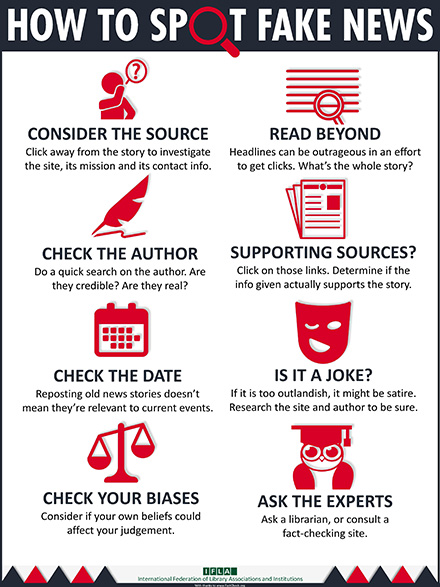Libraries, Media and Information Literacy Only Sustainable Response to Fake News
02 February 2018
Faced with growing concerns over fake news, the European Union launched a consultation on fake news, and how to fight it in November 2017. IFLA has responded, underlining that the only sustainable response is a literate, critical population. Libraries are essential in delivering this, and should be supported to do so.
Libraries have a long and rich experience of promoting information literacy, and of working closely with others to promote media literacy. These are the skills required to understand and evaluate the information – news articles, scientific journals, official publications, blogs or tweets, to name just some – that citizens receive on a day to day basis. Without these skills, people are easily mislead or simply remain ininformed, and cannot play a fully active role in society.
Nonetheless, it has only been recently that this issue has seized the public imagination. The rejection of scientific evidence on medical or climate issues, the spread of untruths around elections, and the use of social media to confuse and create distrust have all helped show how important these skills are.
In its response to the EU consultaiton on fake news, IFLA underlines that while there clearly are challenges linked to the Internet as a way of spreading intentional misinformation, the response is not necessarily regulation or government intervention. Rather it is skills – for all, and at all stages of life – that will make the difference.
You can access IFLA’s response to the consultation here.
See also our summary of the European Parliament report on libraries and media literacy.
